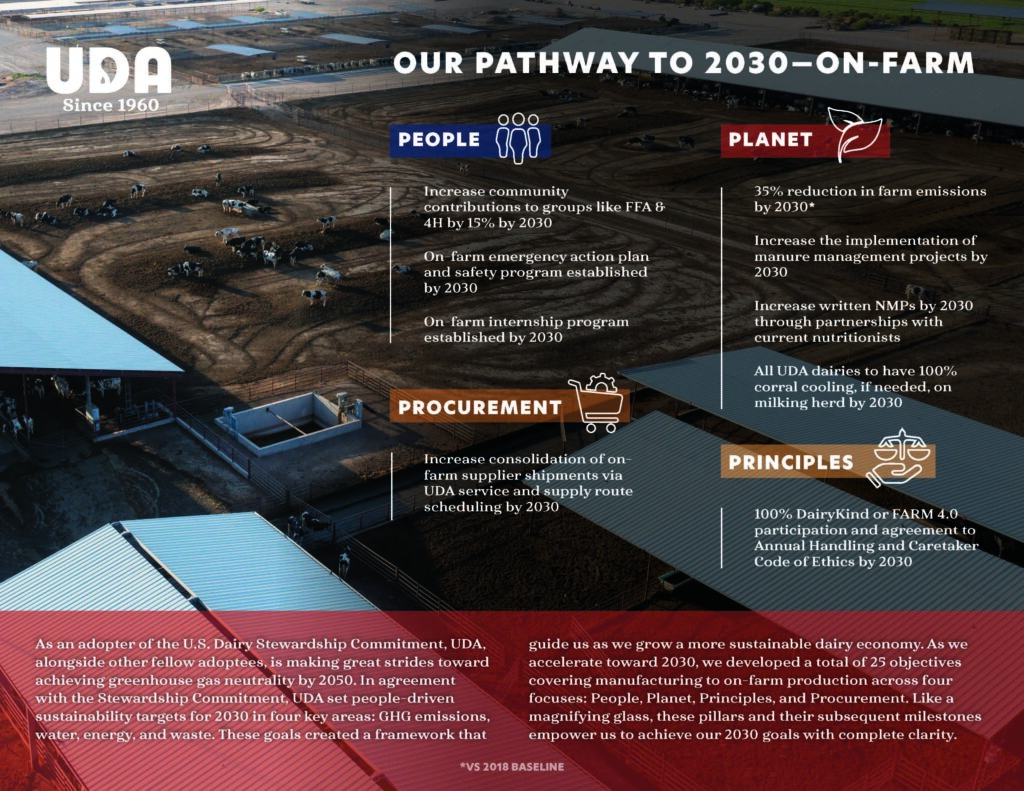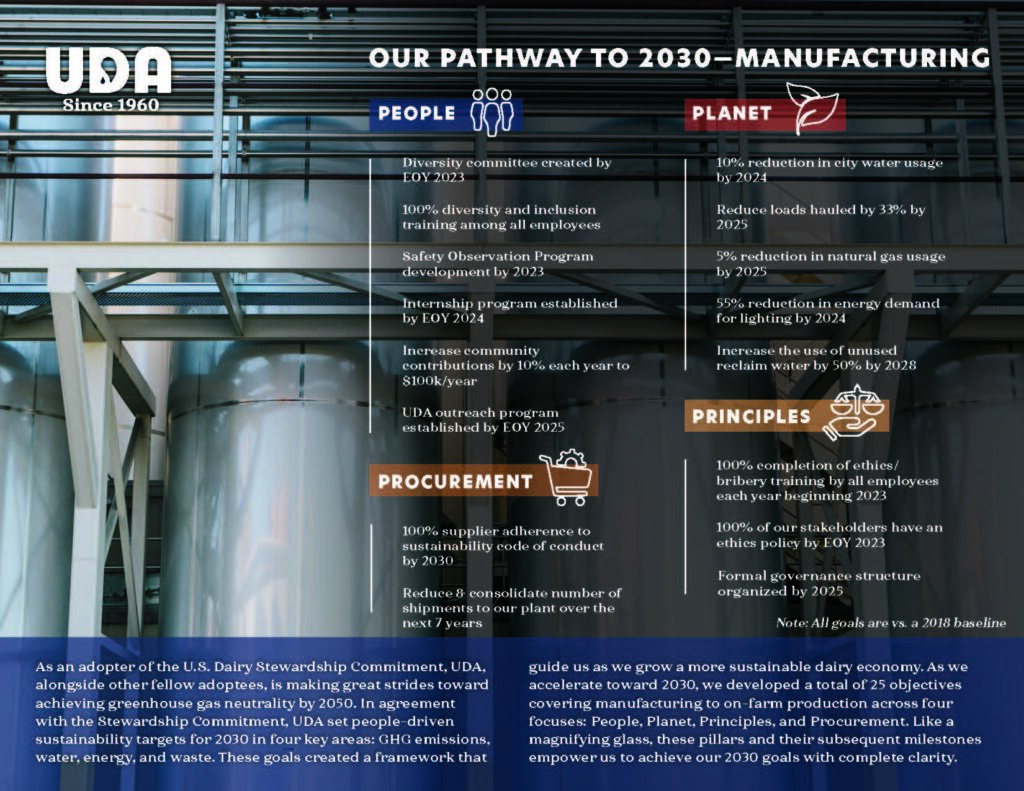SUSTAINABILTY
We drive Progress in this critical area
During the UDA’s 60 year history, the U.S. dairy industry has been able to drastically reduce its overall environmental footprint.

What this looks like
2007 compared to 1944:
Producing a glass of milk saw a 37% reduction in carbon footprint and Required:
35% less water
10% less land
21 fewer animals
We Go Further
We believe that sustainability is more than just environmental impact.
Focusing on these additional key areas helps as thrive:
Workforce development
Community contributions
Food and safety quality
Responsible animal care
Accountability
We are proud of adopters of the U.S. Dairy Stewardship Commitment, a voluntary pledge to demonstrate sustainability progress through industry-aligned action and reporting in the areas of environmental and social sustainability.
Results
Our farms emitted less greenhouse gas than the regional average. 17,420 cars’ worth, to be exact. Even though UDA’s farms used more energy than the national average, UDA’s farms emitted 10% fewer greenhouse gas (GHG) emissions per lb. FPCM than the regional average. This difference amounts to 17,420 fewer cars driven on the road in one year!
Our Pathway to 2030
Learn more about the U.S. Dairy Stewardship Commitment
How We Do It

Turning Greenhouse Gases into Energy
We credit some of our environmental success to digesters.
A methane digester from just one dairy can produce up to 5 million kWh of electricity, enough to power over 400 households.
Here’s why we like digesters:
- They capture methane (25 times more harmful than carbon dioxide) and produce biogas that can be used on the farm or sold to local utilities.
- Biogas converts to electricity, which then replaces electricity that would otherwise come from the grid.
- While they’re at it, the digesters separate out water and solids (yeah, those kinds of solids) from the methane, which are then turned to fertilizer-grade manure and irrigation water.

Compost Puts it Back into the Soil
Seven of our member farms are even converting manure into compost.
The repurposing of this often-overlooked byproduct as fertilizer (and/or soil amendment) helps to:
- reduce odors
- create alternative revenue streams
- reduce on-farm greenhouse gas emissions from manure

Brewers Grains Don't Go to Waste
Our farmers have found another way to recycle.
They use brewers grains (a waste product of the brewing process) as a protein-rich, highly digestible food source for their animals.



